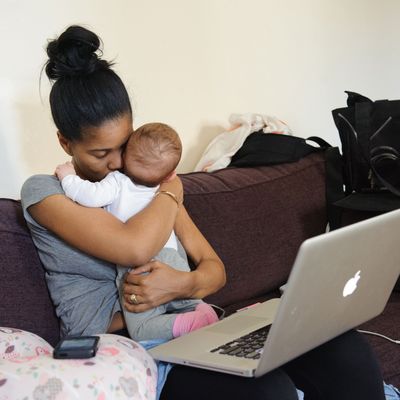
Alice Proujansky is a photographer who has been documenting mothers since 2006. Initially focusing on the birth experience, Proujansky shifted her eye toward the intersection of parenthood and work after she became a mother herself.
Her series Women’s Work, which has been ongoing since 2013, features women in the middle of the delicate balancing act that is working motherhood.
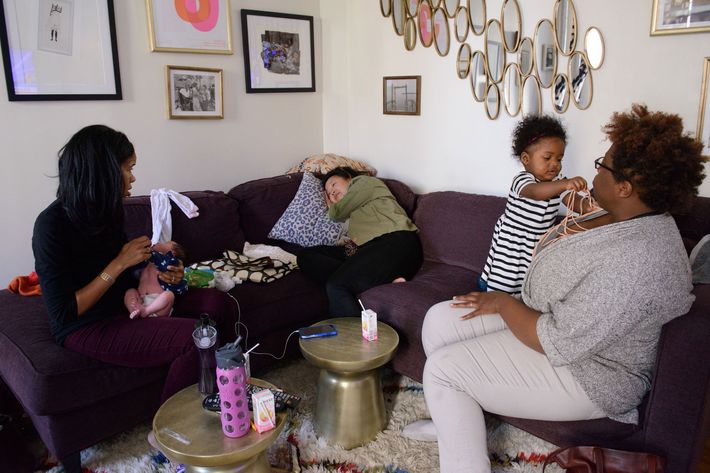
How did you start this project?
When I had my son in 2012 I experienced a huge identity shift. I already had worked really hard to establish a career in photography and it was basically my identity. I was a photographer. And then I had to contend with this other, equally important identity that was in some ways conflicting and I didn’t see a lot of models around me for people who had done this exactly. The field just tends to be very … you know. The image of a photojournalist is often the young man who’s traveling to conflict zones and that’s not me at all.
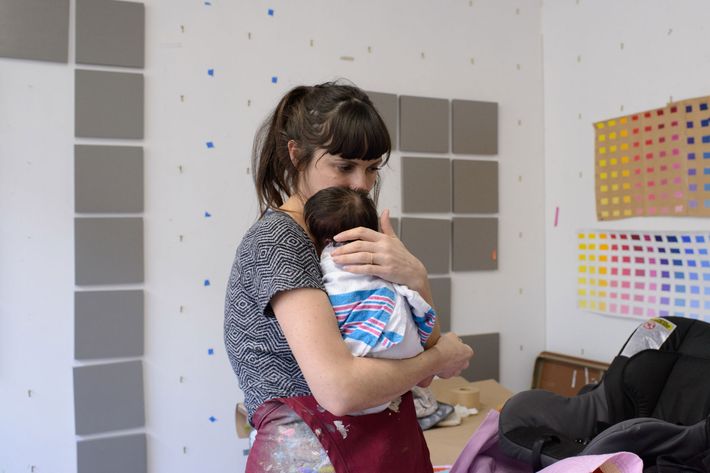
Then it becomes harder once you have a kid. Part of your job in life as a mother is to not die.
Exactly. And I never did that work anyway, but I always felt like I should be and that’s what it would mean to be a real photojournalist. That’s the important work and it never worked for me. That’s one way in which becoming a mother has actually made my work more true to who I am. Because there were these things I was always interested in which happened to be women and our bodies and our work, and I was like, “Well, at this point I have a tiny baby, I am not going to be able to self-fund these projects where I travel like I used to even though I would only do them like once a year because I had been saving money working as a teaching artist. It was at that point, when I had a baby, I was like, this is just not going to work.
And so I also was really grappling with this idea of working motherhood as an identity question. We talk the logistics of it and we talk a lot about the policy question, which, those are totally important conversations, but I wanted to look more at the identity side of this. And I can feel myself in the photos. The people are sort of analogs of myself, so it’s their stories but they have a lot of me in them.
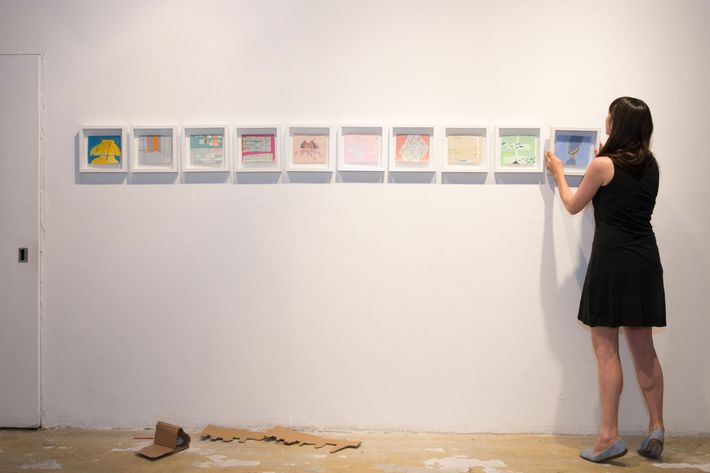
Tell me about the women you photograph.
They tend to have a lot of similarities to me. It’s not trying to be comprehensive or make a full statement about the state of working motherhood because that’s too big, it’s about this certain group of women who’ve been fortunate enough and worked really hard to have these careers that make up a large part of our identities, and then we have kids when we’re sort of … the careers are flourishing and you really have to figure out how these things integrate. And so in my own life, I found they definitely fight each other. It’s difficult; the logistics are hard, the finances are impossible. But conceptually and in terms of the quality of the work I think that becoming a mother has been really helpful.
Before I had kids I was photographing birth because I was really interested in trying to understand it, because it’s just inconceivable. But once I gave birth, I was sort of done photographing birth. It had gone from being this abstract question of what is birth? to me knowing, No, I know specifically in my case what birth is.
So, all of the women that I’m photographing are … they’re ambitious, they’re complicated, they are ambivalent, they love their children. They are … some of them are struggling with the logistics and finances. It just is really helpful to be around people who are in this incredibly intense thing that I kind of didn’t see coming.
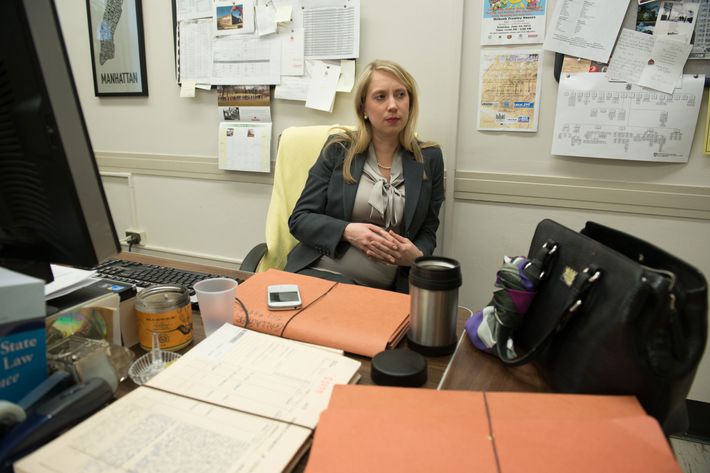
I didn’t see it, either.
I knew day care would be expensive. I knew my apartment would feel too small and I would worry about scheduling, but I did not understand … you know when you’ve had this really busy day and it’s either been a struggle and frustrating or great and you feel accomplished, and then your day is over and a whole different thing starts. You go pick up your kid and suddenly you change pace or you get the call when your kid is sick. Your pace changes. Your goals change. Nothing is predictable. The whole world works differently. It all centers around somebody, who is not you, and they’re like freaking out about the potty! And it’s like …
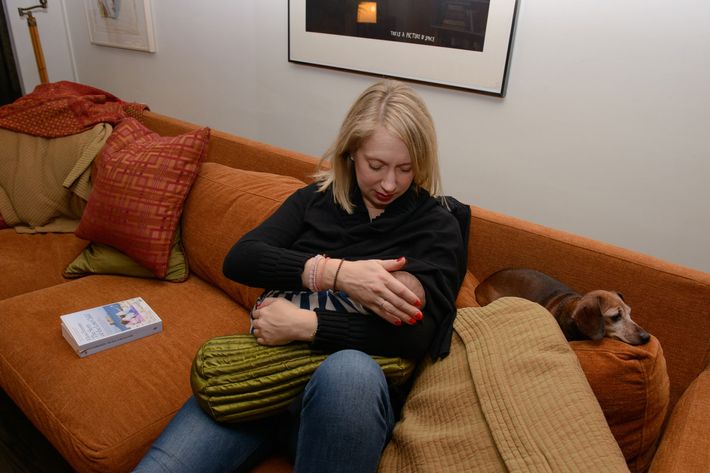
It’s nuts. It’s completely insane.
It is. Yes.
Our culture doesn’t value care-taking and that’s reflected in the way that we do and don’t pay our teachers, house aids, nurses, anything that is in the female realm, and not that all teachers are women, but you know it has connotations. We don’t pay those people well, and we expect support to be given freely and to be transparent and have no monetary value, because that’s how we often value something of status. And so we expect maternal love to just flow from women, and in that we really don’t value it. And so in our culture we put women on a pedestal like, “Oh, mommies, mothers,” but we don’t offer any kind of support in terms of paid leave, obviously. We don’t pay people who do this work. My day-care providers, some of them have children and I know they don’t make any money, and who takes care of their children?
I also think the whole conversation around working motherhood is of failure of intersection. It is people, like myself, who — I suppose I could choose to stay home, like I would have a roof over our head, it would be a really bad financial decision. But the majority of American mothers work. And the majority of American mothers of young children work.
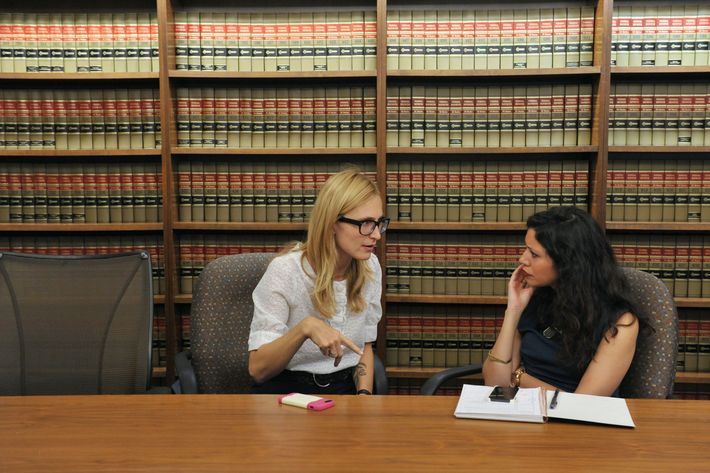
And almost no one gets maternity leave.
Right, and so the conversation ends up being a little bit too much about a certain slice of working mothers, which is something I struggled with in this project because I was like, “This is not inclusive.” But then I thought that’s because the conversation is really different and I can’t … I need to be very specific about this specific thing I’m experiencing right now. I need to learn from other women who are in something similar to me. Or this specific project. If I get too broad with it I’m going to be trying to speak to everyone and try everything, and that’s not going to communicate something clearly.
And I wanted people whose careers in many ways defined them, so it wasn’t just people who were working to pay the bills; it was people who were really passionate about what they did.
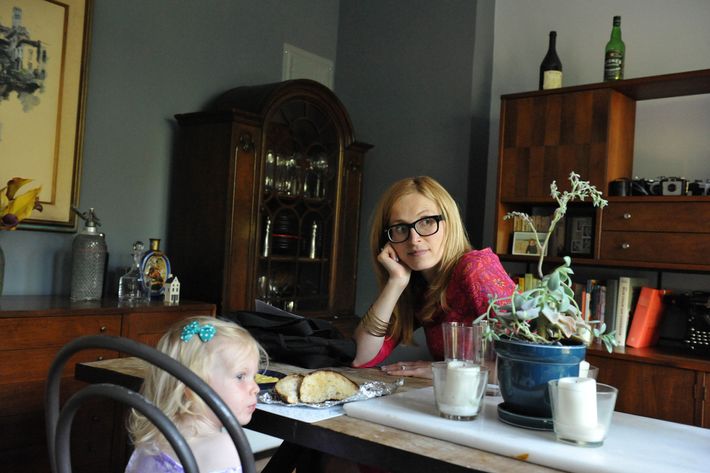
And so much of your work is about female communities.
I think that we’re entering an interesting time when we’re talking more about female friendships. I think about it as, it was the Mean Girls era when everyone … that was sort of the dominant narrative of what women were like together. But now the Elena Ferrante books were what I read on my maternity leave. And they blew my mind. You know? It was about the complicated and competitive and beautiful and supportive and motivating and sometimes destructive friendships that women have. You know, this intensity. This fullness and this richness. And looking at female relationships, it’s like, this is worth discussing. It’s something that is of value that we need to talk about. And I guess having a kid has made me, you know, be pushed into this more sort of specifically female experience of like, part of it physical and part of it is an identity question as a mother. Because that is, for me, and I cannot speak for everyone, but for me, that it has been different than my husband’s experience of being a father.
When I look at the photos there are clearly policy implications. We can’t really beat the drum enough, just to say it’s better for mothers pretty much everywhere else.
The issue is that babies and children and parenting, that’s part of life. And it is not a weird pet that somebody chose. It’s something that needs to be accepted as a normal part of the human experience. And that people are gonna need time off to take care of their children. That’s normal. They haven’t chosen to do some weird, indulgent thing. In terms of policy implications, a number of the women I photograph either didn’t get paid time off, or they barely got off, or outright didn’t get enough. Let alone the partners. My husband got sort of a week off. Yes, we do need to have paid family leave. That is better for everyone involved.




